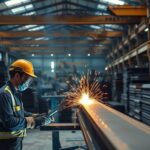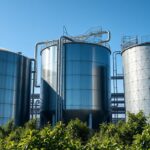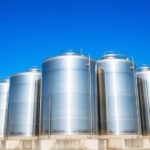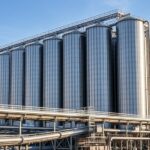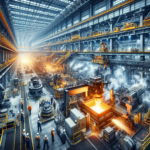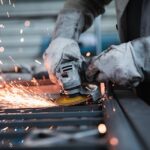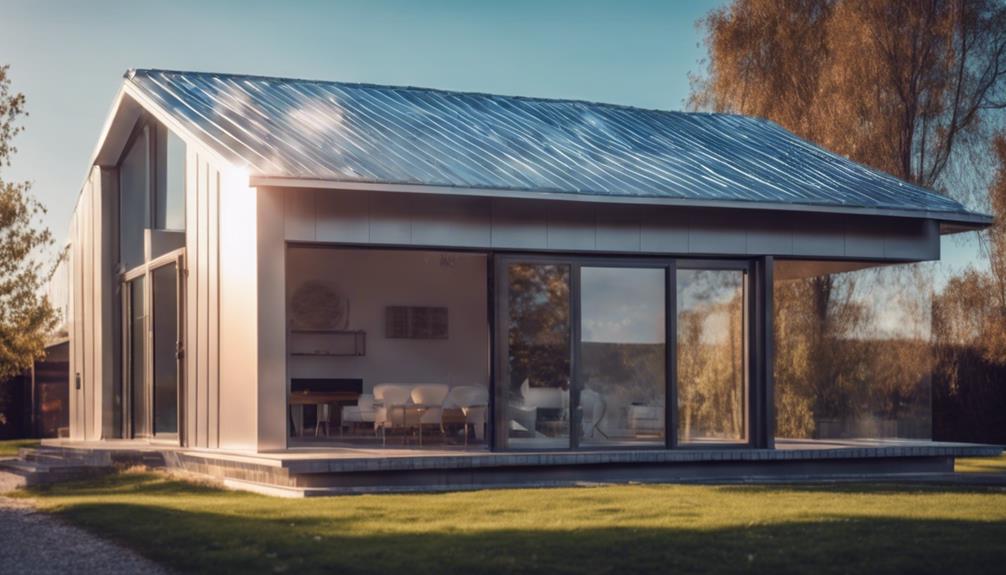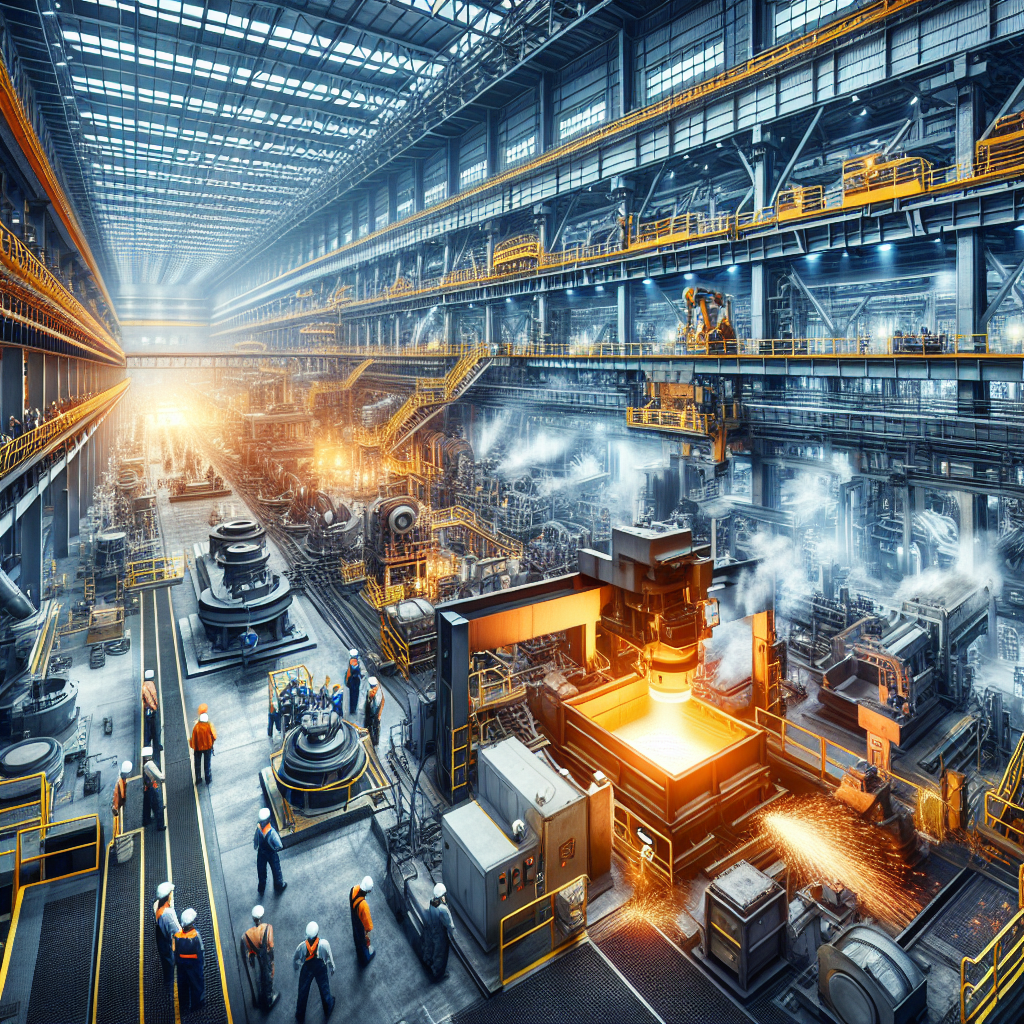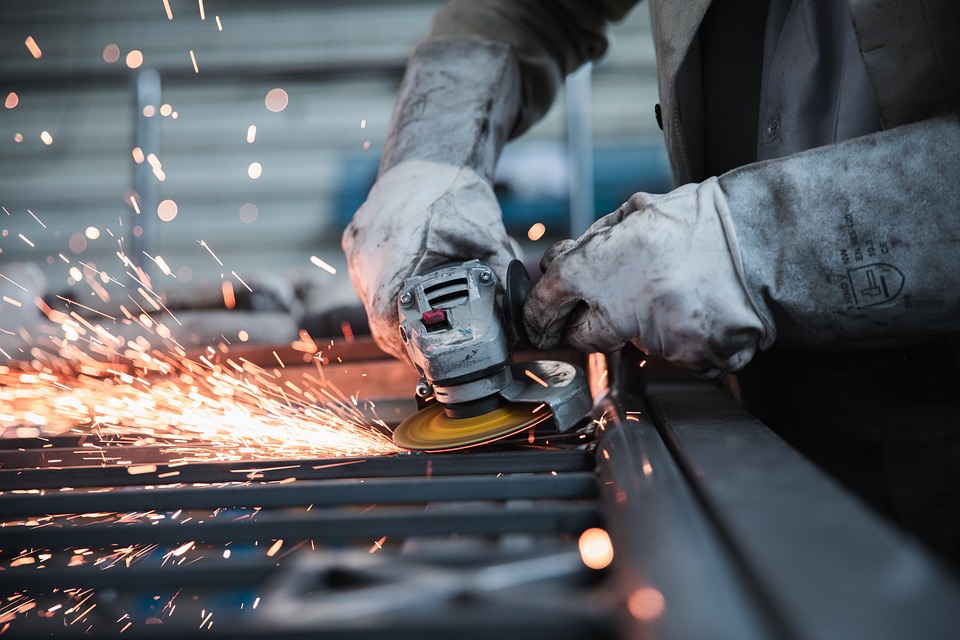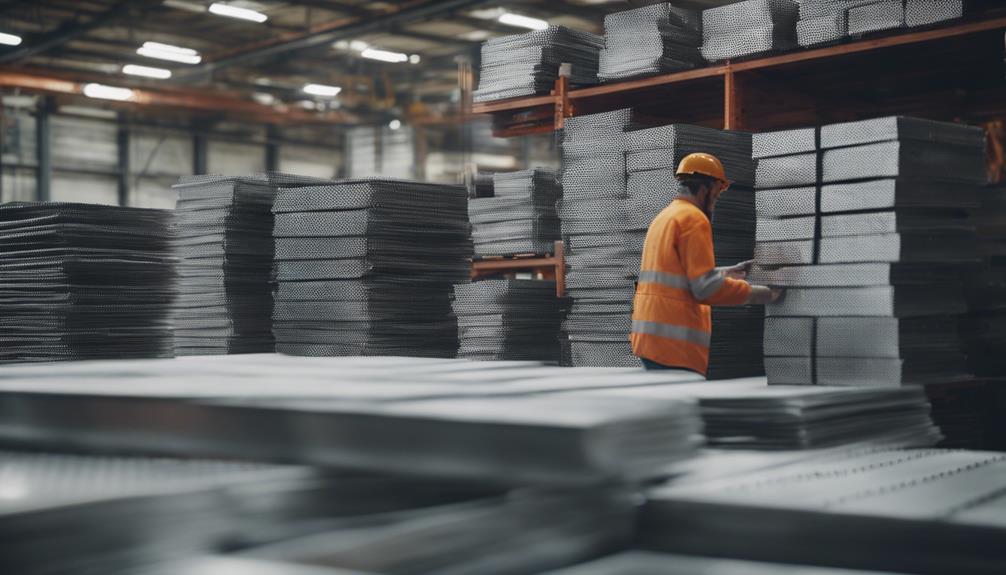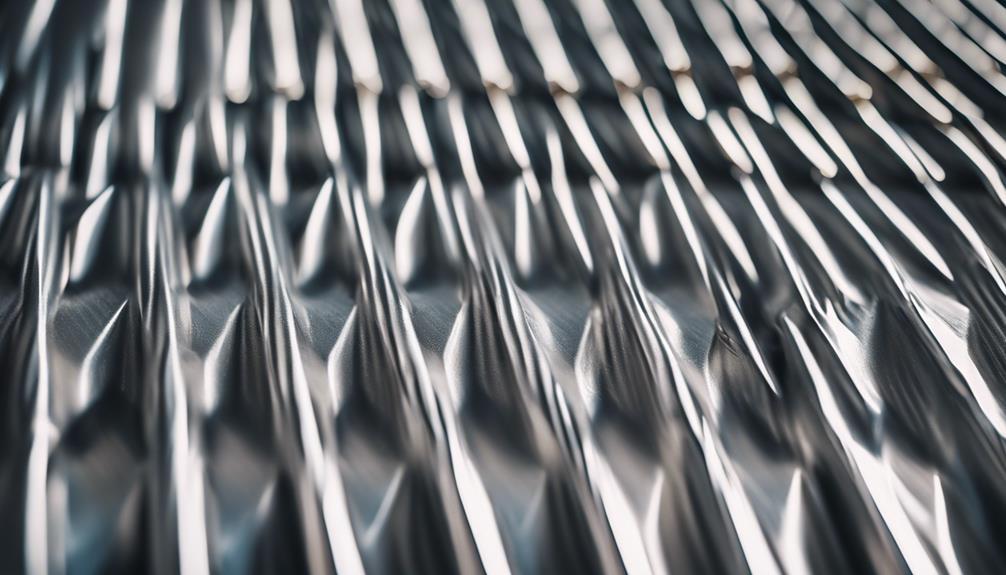Metal roofing sheets are well-known for their durability and cost-effectiveness, making them a preferred option for both residential and commercial structures that aim to withstand the elements effectively. The high-quality construction involving galvanized steel with protective zinc coating guarantees long-term reliability and protection. Additionally, the versatility in types and styles caters to different needs and preferences, offering a wide range of solutions for various projects and budgets.
Key Takeaways
- Unparalleled durability and protection with galvanized steel.
- Diverse selection including ribbed, corrugated, and wide rib panels.
- Secure installation with appropriate fasteners and flashing.
- Regular maintenance enhances longevity and durability.
- Cost-effective option with a range from $1.50 to $25 per square foot.
Benefits of Metal Roofing Sheets
Metal roofing sheets guarantee unparalleled durability and weather resistance due to their high-quality construction from materials like galvanized steel. Galvanized steel, recognized for its protective zinc coating, enhances the longevity of metal roofing sheets by preventing rust and corrosion, even in harsh weather conditions. This makes them an excellent choice for structures requiring long-term protection and reliability. Additionally, the use of galvanized steel in metal roofing sheets assures strength and structural integrity, providing a sturdy roofing solution that can withstand various external pressures. The incorporation of galvanized steel in the manufacturing process underscores the commitment to quality and performance, making metal roofing sheets a practical and cost-effective roofing option for a wide range of applications.
Types of Metal Roofing Sheets
Distinguished by their composition and design variations, metal roofing sheets offer a diverse selection catering to different aesthetic preferences and functional requirements in the construction industry. Among the various types, steel roofing stands out for its durability and cost-effectiveness. Steel roofing panels come in options such as ribbed, corrugated, and wide rib panels, providing versatility for different architectural styles. Due to its strength and resilience, steel roofs are a popular choice for many construction projects. Whether it's the sleek look of ribbed panels or the classic appeal of corrugated sheets, steel roofing offers a reliable and long-lasting solution for both residential and commercial buildings.
Installation of Metal Roofing Sheets
Efficient installation techniques are essential for ensuring the effectiveness and longevity of metal roofing sheets on a building's structure. When working with steel roofing sheets, it is vital to secure the panels to the roof structure using appropriate fasteners to create a watertight seal. Proper installation methods include overlapping the panels correctly to prevent water leakage and incorporating suitable flashing around edges and penetrations. Steel roofing sheets can be customized to fit the specific dimensions of a roof, ensuring a precise and secure fit during installation. Following manufacturer guidelines and recommendations is paramount to guarantee the longevity and performance of the roof system. Adhering to these practices will help maximize the benefits of steel roofing sheets.
Maintenance Tips for Metal Roofing Sheets
Regular inspection and timely maintenance are vital for preserving the integrity and longevity of metal roofing sheets. To guarantee the durability of metal roofing, it is essential to regularly inspect for damage or corrosion, addressing issues promptly. Cleaning metal roofing sheets at least once a year is recommended to remove debris, dirt, and moss that can degrade the material. Applying a protective coating or sealant can enhance the sheets' durability and resistance to weather elements. Additionally, trimming overhanging tree branches can prevent damage from falling limbs that may dent or scratch the metal surface. Proper ventilation in the attic space is also crucial to prevent moisture buildup, which can lead to rust or corrosion on metal roofing sheets.
Cost Considerations for Metal Roofing Sheets
When considering metal roofing sheets, it is essential to factor in the range of costs associated with different materials and quality levels. Metal roofing sheets can range from $1.50 to $12.50 per square foot, with high-end options like copper and zinc reaching up to $25 per square foot. Factors influencing the cost include the type of metal used, such as Galvalume Steel, the gauge of the metal, and the panel profile. Installation costs typically range from $3 to $7 per square foot but can vary based on project complexity and location. Opting for a durable and weather-resistant metal roofing sheet, like Galvalume Steel, can result in long-term savings by reducing maintenance and replacement expenses.
Comparing Metal Roofing Sheets to Other Materials
In comparison to various traditional roofing materials, metal roofing sheets offer exceptional durability, longevity, and versatility in design options. Metal roof panels, such as galvanized steel sheets, are renowned for their strength and weather resistance, making them suitable for structures like garages, sheds, and commercial buildings. Unlike conventional asphalt shingles, metal roofing sheets have a lifespan of 50 years or more, notably reducing the frequency of replacements. Their lightweight nature facilitates easy installation, potentially reducing labor costs during the setup process. Additionally, metal roofing sheets are resistant to common issues like rotting, warping, and insect damage, ensuring prolonged structural integrity. With a range of colors and finishes available, these sheets provide ample design flexibility for various architectural styles and preferences.
Environmental Impact of Metal Roofing Sheets
Moreover, metal roofing sheets' environmental impact is notable for their sustainability and energy efficiency, contributing to a greener construction approach. These sheets are eco-friendly as they are often manufactured from recycled materials and are fully recyclable at the end of their lifespan. The production process of metal roofing sheets consumes less energy than other roofing materials, thereby reducing the overall environmental impact. Additionally, metal roofs can enhance energy efficiency by reflecting solar heat, decreasing the necessity for air conditioning, and lowering carbon emissions. Their long lifespan of 50 years or more also reduces the frequency of replacements and waste generation. Moreover, the compatibility of metal roofs with solar panel installations promotes renewable energy usage, further amplifying their positive environmental benefits.
Innovations in Metal Roofing Sheets
With advancements in technology and manufacturing processes, the landscape of metal roofing sheets has been transformed, offering a diverse range of profiles and materials to meet the evolving needs of the construction industry. Innovations in metal roofing sheets have primarily focused on enhancing durability to guarantee longevity and weather-resistance. Modern metal roofing sheets are now manufactured using materials like zinc/aluminum coated steel, galvanized steel, and polycarbonate plastic, which contribute to their improved durability. These innovations not only increase the lifespan of the roofing sheets but also provide customization options to fit specific project requirements. Additionally, the availability of different colors, dimensions, and coverage areas adds versatility and aesthetic appeal, making metal roofing sheets a practical and attractive choice for various applications.
Frequently Asked Questions
What Is the Biggest Problem With Metal Roofs?
The most significant challenge with metal roofs is maintaining proper insulation, fastener stability, and waterproofing. Issues like heat gain, noise during storms, and potential leaks can arise if installation and maintenance are not carefully executed.
What Is the Best Sheet Metal for Roofing?
The best sheet metal for roofing depends on factors like budget, location, and desired aesthetic. Steel is popular for its durability and cost-effectiveness, while aluminum suits coastal areas. Copper offers premium longevity and a unique patina, while zinc is exceptionally long-lasting and ideal for seaside properties.
What Are the 2 Types of Metal Roofs?
The two main types of metal roofs are steel and aluminum. Steel roofing is valued for its durability and affordability, while aluminum roofing is prized for its lightweight nature and resistance to corrosion, offering unique benefits to consumers.
What Material Do You Put Under Metal Roofing?
Under metal roofing, the material placed underneath, known as underlayment, acts as a protective barrier against water infiltration. Common options include synthetic underlayment, felt paper, and self-adhering membranes. Proper installation of underlayment is essential for long-term performance.
